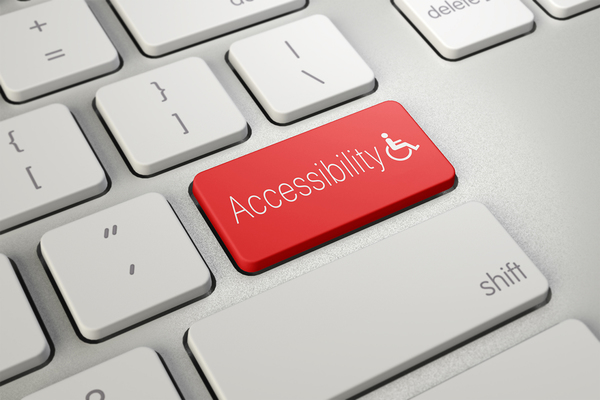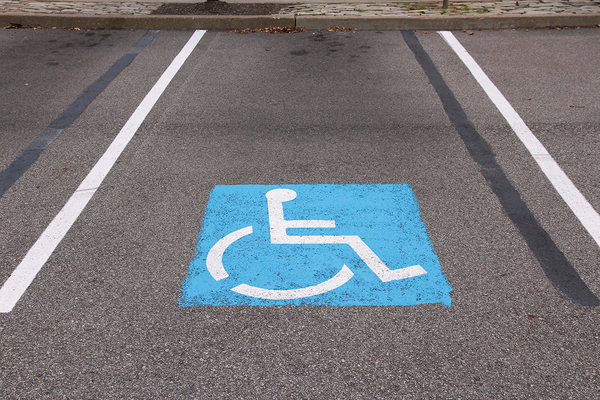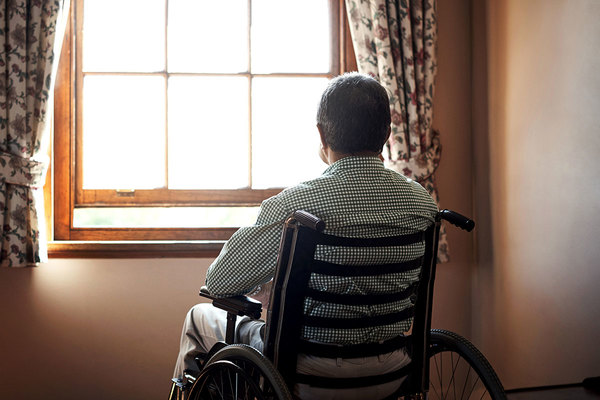You are viewing 1 of your 1 free articles
We must do more to tackle the barriers for disabled tenants
In last year’s Social Housing Green Paper, landlords were urged to listen to their tenants more but is enough being done to engage with disabled residents? Sheron Carter says the industry could be doing more
The 2016/17 English Housing Survey estimates that half of social households have at least one member with a long-term illness or disability.
So as the government’s Social Housing Green Paper signalled a challenge to the sector to do better when it comes to listening to and engaging with tenants, we are looking hard at how effectively Habinteg’s disabled tenants are reflected in our improvement strategies.
I joined Habinteg after three decades in the sector and have attended many tenant forum meetings and engagement events.
Yet at my first tenant meeting with Habinteg, I was struck by the visible difference in the people in the room. Most of the attendees were disabled people. This challenged me to think about how well I had involved and listened to disabled tenants throughout my housing career.
Like our peers, we have a range of mechanisms for engagement. We run quarterly tenant inspections, tenant representative forum meetings and scrutiny projects. Our core value of inclusion is embedded in the way we plan our engagement.
It can mean budget set aside for essential personal assistance support or for sign language interpreters at events, it can influence where and when we hold meetings and, of course, how we promote them. It can also influence the mechanisms.
Our ‘Your Voice’ panel is a home-based panel of tenants who feed back on communications materials and policy questions – set up in recognition of the fact that many disabled people find it hard to travel to meetings out of their neighbourhood.
Of course, we don’t always get it right and we continue to look for ways to improve and new ways to give a platform to the voice of disabled tenants in particular. At Habinteg our mission has always been to improve the experience of disabled people in mainstream housing settings.
If we’re serious about that continued improvement as the world, technology and the housing industry changes around us, we have to hear about and understand the specific problems disabled people face. That might include what for many is the tortuous process of applying and waiting for suitably accessible housing or securing funding for vital adaptations.
“Of course, we don’t always get it right and we continue to look for ways to improve and new ways to give a platform to the voice of disabled tenants in particular”
This goes beyond our role as a landlord (though certainly includes it) and extends to the way we build on our tenants’ experiences to encourage better policy and practice throughout the sector.
To help enhance disabled peoples’ voice on housing, we have recently launched a new advisory group of Habinteg tenants and other disabled people.
Their first meeting took place in the House of Lords last month and their discussion was a strong reminder of the challenges that group members have faced at every stage of the housing journey. From the inaccessibility of choice-based lettings systems to lengthy waits for adaptations and the lack of accessible shared ownership properties, there are myriad challenges. We heard about local authorities who reserved wheelchair accessible properties for older tenants – effectively excluding younger people from even applying.
In other places new build accessible properties were being delivered in smaller unit sizes, making it very hard for families to find a suitable home if they included a wheelchair user.
The group also shared the impact of having their housing needs met. We already know that disabled people with accessible homes are four times more likely to be in work than those who don’t have the homes they need. Yet, for me, the most striking testimony came from a tenant who shared how the accessibility of her home had supported her to play a full role as mother to her children and had transformed her mental health and well-being.
“We already know that disabled people with accessible homes are four times more likely to be in work than those who don’t have the homes they need”
We’re looking forward to working with the group, making their experiences to the centre of our efforts to push for change in both national and local policy – and changes that are long overdue in the housing sector itself.
They are already attracting the attention of parliamentarians and the media which shows that there is nothing more compelling than the voice of personal experience.
Many of the themes the group spoke about mirrored the findings of last year’s detailed inquiry report from the Equality and Human Rights Commission, which provides a valuable deep dive into disabled people’s housing experiences and the factors creating the most persistent barriers.
The toolkits Habinteg helped produce following the report provide some practical suggestions for local authorities seeking to improve their practice, as well as detailed ideas about planning for inclusive engagement events. It’s a helpful tool for tenant engagement teams looking to improve the inclusivity of their work and has the potential to make a huge difference to the involvement of disabled people.
Our sector has taken positive steps to address inequalities. The green paper’s focus on tenant engagement provides an opportunity to extend this to all our customer groups.
Hearing the views and experiences of our disabled tenants and tapping into their knowledge and talents brings us closer to providing an inclusive service and appropriate homes for all. We all could do more to reduce the barriers faced by disabled people.
Sheron Carter, chief executive, Habinteg














